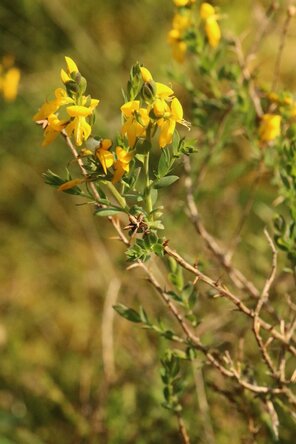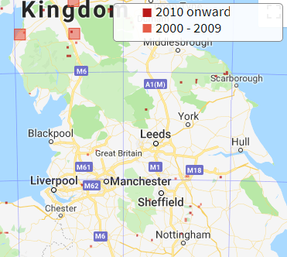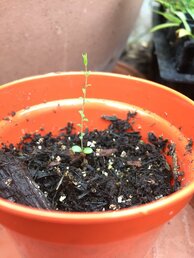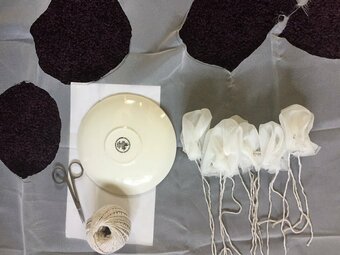Conserving Petty Whin (Genista anglica)

Petty Whin (Genista anglica L.) (left) is a plant of acidic heaths and moors which has undergone serious decline over the past century in NW England (>95% decline in range), primarily due to the loss, fragmentation and degradation of its occupied habitats. Nationally, it is red-listed 'Vulnerable', having seen significant declines and is typically very local in England.
Whilst the species now survives largely on statutorily designated, protected sites in the region, it is still in decline; many populations produce very few viable seed. Historical declines have lead to populations often consisting of individual plants - a significant problem for a plant that relies on cross-pollination with other individuals.
To address ongoing declines of this regionally endangered species, we are working with private landowners, Lancashire Wildlife Trust, RSPB and Natural England to collect seed and improve population sizes and genetic diversity at extant sites. We are also working on occupied sites to improve habitats in order to promote germination and persistence and hope that these efforts will result in more robust, healthy populations of the species in NW England.
Whilst the species now survives largely on statutorily designated, protected sites in the region, it is still in decline; many populations produce very few viable seed. Historical declines have lead to populations often consisting of individual plants - a significant problem for a plant that relies on cross-pollination with other individuals.
To address ongoing declines of this regionally endangered species, we are working with private landowners, Lancashire Wildlife Trust, RSPB and Natural England to collect seed and improve population sizes and genetic diversity at extant sites. We are also working on occupied sites to improve habitats in order to promote germination and persistence and hope that these efforts will result in more robust, healthy populations of the species in NW England.



